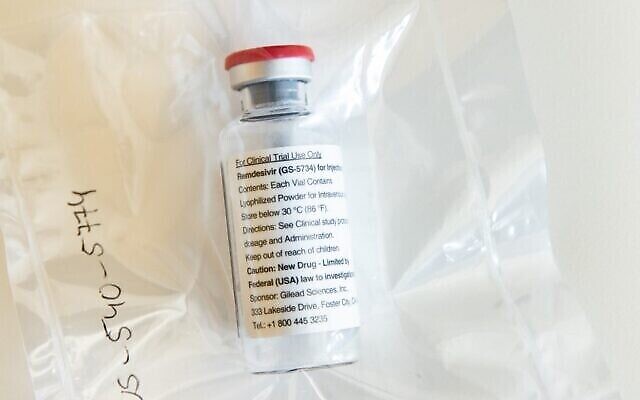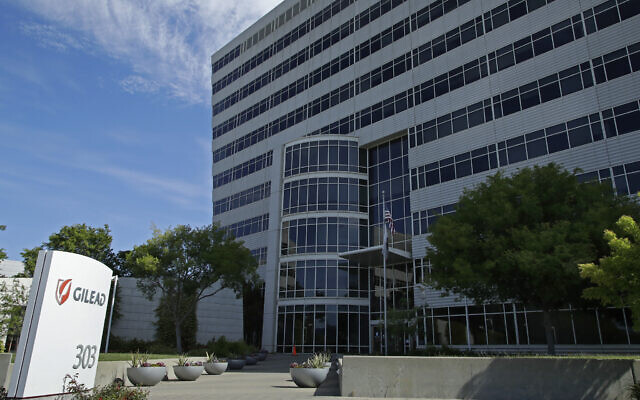Remdesivir Results for Virus Encouraging but too Early to Celebrate
FDA last week gave emergency approval to medicine produced by Gilead Sciences; it is believed to shorten illness time in some, but effect on mortality rates still unclear.

The results of US trials of antiviral drug remdesivir for treating coronavirus are encouraging, but it is too early to celebrate, the CEO of the drugmaker’s Israel branch said in an interview Monday.
The drug last week received fast-track FDA approval for emergency use in treating COVID-19.
“The drug is still in the trial stage, but has been authorized for emergency use, which means that in the United States it will be used as a treatment for hospitalized patients. The drug is still a trial drug, which means that we are continuing to study it in order to gather data to prove its safety and efficacy.”
Feinmesser added that while the trial results were encouraging, “we are not celebrating yet.”

Last Friday, the FDA cleared Gilead Sciences’ intravenous drug for hospitalized patients with “severe disease,” such as those experiencing breathing problems requiring supplemental oxygen or ventilators.
“This was lightning speed in terms of getting something approved,” said FDA commissioner Stephen Hahn, calling the drug “an important clinical advance.”
The FDA acted after preliminary results from a government-sponsored study showed that remdesivir shortened the time to recovery by 31 percent, or about four days on average, for hospitalized COVID-19 patients.
Those given the drug were able to leave the hospital in 11 days on average vs. 15 days for the comparison group. The drug may also help avert deaths, but the effect on mortality rates, if it exists, is not yet clear.
Dr. Sameer Khanijo, a critical care specialist at North Shore University Hospital in New York, said he wants to see additional studies to clarify the drug’s benefit.
“I don’t think this is a cure yet, but I think it’s starting to point us in the right direction,” said Khanijo. “As a society it’s nice to have something that will help stem the tide of this disease.”

The FDA said preliminary results from the government study warranted Friday’s decision, though regulators acknowledged “there is limited information known about the safety and effectiveness of using remdesivir.”
The drug’s side effects include potential inflammation of the liver and problems related to its infusion, which could lead to nausea, vomiting, sweating and low blood pressure. Information about dosing and potential safety issues will be provided to physicians and patients, the FDA said.
The National Institutes of Health’s Dr. Anthony Fauci said last Wednesday the drug would become a new standard of care for severely ill COVID-19 patients. Remdesivir, which blocks an enzyme the virus uses to copy its genetic material, has not been tested on people with milder illness.
The FDA authorized the drug under its emergency powers to quickly speed the availability of experimental drugs, tests and other medical products during public health crises.
In normal times the FDA requires “substantial evidence” of a drug’s safety and effectiveness, usually through one or more large, rigorously controlled patient studies. But during public health emergencies the agency can waive those standards and require only that an experimental treatment’s potential benefits outweigh its risks.
Gilead has said it will donate its currently available stock of the drug and is ramping up production to make more. It said the US government would coordinate distribution of remdesivir to parts of the country that need it most.
No drugs are currently FDA-approved for treating the coronavirus, and remdesivir will still need formal approval.
The FDA can convert the drug’s status to full approval if Gilead or other researchers provide additional data on remdesivir’s safety and effectiveness.



comments